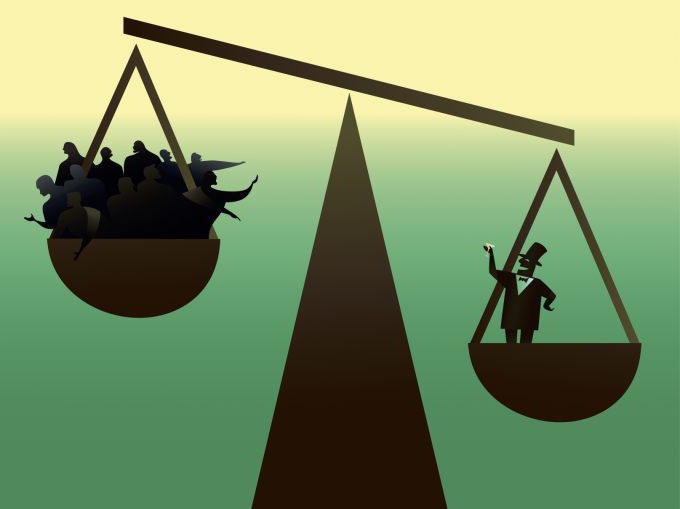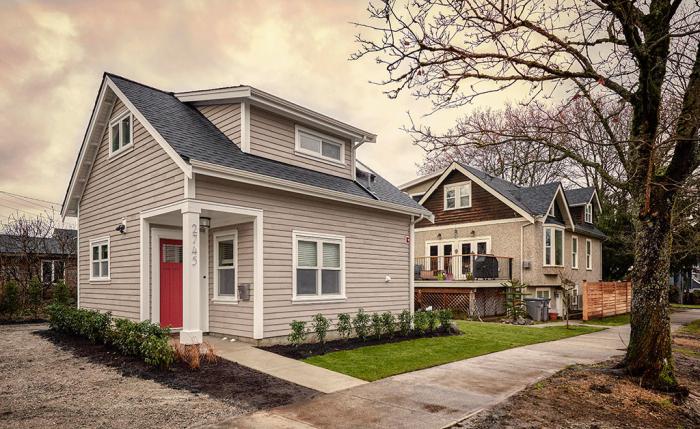Today, privatization should be understood as the transfer to the ownership of citizens of a certain object or land on the basis of free and voluntary. As a rule, residential premises occupied by these citizens are transferred both in the state and municipal housing stock of the country. Is housing privatization necessary? Of course! This is nothing more than an excellent opportunity to purchase the apartment or house that you are currently renting from the state.
What is privatization for?

When considering whether to privatize housing or land, a number of related factors need to be considered. As in any situation, there are pros and cons. What gives the citizen privatization? First of all, this is his transformation into the owner of the property. But it is precisely from this moment that a person has the opportunity to sell, exchange, lease it. Secondly, after privatization, a citizen turns into a potential owner, as a rule, of a rather large sum of money. It is for this money that he has the opportunity to sell housing or land. Thirdly, if desired, a citizen can significantly improve the quality of their own living conditions. This can be done, for example, by selling privatized housing and supplementing the amount received with some funds to buy a new apartment or house. Fourth, there is an important nuance: if the developer is engaged in the resettlement of the house, the owners of the privatized apartments will have at their disposal exactly those apartments that the company will be able to buy for them. The rest are settled according to the Housing Code. Thus, owners of privatized apartments have higher-quality housing.
Pros and Cons

Why privatization is needed? In addition to all the advantages discussed in the previous chapter, a few points can be noted. It is important that absolutely all expenses intended for the execution of documentation are completely incomparable with the price that will have to be paid in case of buying a new apartment according to the standard scheme. If we consider this issue in more detail, we can conclude: the owner can get privatized housing almost for free.
But it is worth remembering that the privatization operation may upset the potential owner, because the privatized house can no longer be exchanged for non-privatized. This fact can be explained by the fact that these are two completely different types of housing. In addition, if you want to abandon the property and transfer it back to state ownership, it is extremely difficult, because the paperwork and the whole process involve the complexity and cost of a considerable amount of energy from the owner. It is important that, in relation to certain categories of citizens, the privatization procedure has its pitfalls. Why privatization of an apartment is needed to the poor and whether it is necessary at all? What is behind this? Can a pensioner privatize an apartment? You can find answers to these and other questions in subsequent chapters.
Is it worth it to privatize an apartment for a poor citizen?

Does privatization of an apartment need a poor citizen? This issue is highly controversial. On the one hand, the poor can safely privatize an apartment, and then sell it and purchase a smaller housing.The difference in price in this case is used freely. On the other hand, behind privatized housing is a significant increase in the expenditure side of the citizen’s budget. From the moment of privatization, the homeowner undertakes to pay not only utilities, but also take an active part in the maintenance of the entire house. In addition, the homeowner must pay real estate tax to the state fund, which has been growing rapidly lately.
As noted earlier, becoming an owner of an apartment, a citizen is no longer able to improve the conditions of his own living without costs. So, if he wants to change the apartment to a larger one, it will be necessary to realize this at his own expense.
Privatization and retirees
Why privatization is needed real estate pensioners and is it necessary at all? It should be noted that for this category of people all the advantages and disadvantages of privatization are closely related to their own comfort in the process of life. Being the owner of housing on legal terms, a pensioner has the opportunity to bequeath it to loved ones. By the way, in this case, all expenses can fall on the shoulders of the heirs, and pensioners have only the right to reside.
But there is a flip side to the coin: in addition to raising costs, in this case there is a risk of deprivation of property. If the apartment is destroyed as a result of natural disasters or a fire, the state will not compensate for this loss. Of course, you can insure your home, but again - this is nothing more than extra costs.
Is it possible to evict a debtor from a privatized apartment?

Does home debtor need privatization? As a homeowner, a citizen should keep in mind that he is the full owner of the property. Thus, if he has debts (for example, on bank loans), then an arrest may be imposed on the privatized object. The situation worsens if a person has other housing in addition. It was then that the possibility of losing a privatized property was great.
Privatization of land
The preceding paragraphs mainly deal with the privatization of apartments and houses. Is land privatization needed? Of course! Absolutely all legal operations with land plots are possible only subject to their legal possession. That is why the Land Code of the Russian Federation established general rules regarding the process of privatization of land, depending on its purpose. In accordance with this, land owned by the state can be transferred into ownership or lease to both legal entities and individuals for a specific fee. Privatization of land may be free and paid.
Free privatization

What is needed for privatization on free terms? A positive answer to this question is possible under the conditions:
- owners of real estate acquired as a result of inheritance or donation, which is located on certain land plots that are not owned;
- citizens who use the land on a rental basis with the goal of housekeeping or to form housing for themselves;
- citizens to whom the state has granted land on the right of use on an ongoing basis;
- land privatization in relation to gardening or garage building cooperatives.
Paid privatization
Why privatization is needed, and is there any point in organizing it on paid terms? If your case does not apply to those listed in the previous chapter, then the operation is paid. This should include, first of all, lands received after 2001 (in accordance with the law that has been issued).In the process of land privatization, it should be remembered that the purchase price is calculated based on the minimum land tax rate in accordance with a specific category of land (at the time the application for privatization was submitted). Thus, the issue of charging a certain fee for the privatization procedure is decided by local authorities. As a rule, they are based on legislative acts.
Land privatization and related documentation

Documents required for land privatization are listed below:
- acts of the state level, the contract for the lease of land;
- documentation for absolutely all buildings located in this territory (it is appropriate to provide a contract of sale, certificate and donation or inheritance);
- cadastral plan, the need for which arises if the land is in the register of cadastral lands;
- technical passports for structures;
- extract from the registration chamber;
- passport of the owner of the land.
Privatization of the apartment. What documents are needed (2017)?
The list of basic documents required today for the privatization of an apartment includes the following papers:
- a warrant or social rental agreement for an immovable property (if the owner does not have this documentation, it can be obtained at a single information and settlement center);
- technical passport for housing, where its technical and floor plan is mandatory (you can order this document at the technical inventory office, if the apartment was redeveloped, it must be legalized without fail);
- cadastral passport for the apartment, which indicates the following information: layout, area, floor and other equally important information (this documentation can be obtained from the cadastral office or from the MFC, as a rule, paper production takes five days);
- extract from the house book containing information about the persons currently registered in the apartment (you can get the document in the passport office, for this you need to provide the employee with a passport and a warrant for the property or a social contract of employment).
What else?

In addition to the documents listed above, for the successful privatization of the apartment it is necessary to prepare the following papers:
- Statements or USRN in the third format, issued for each person participating in the privatization process. Extracts, as a rule, contain information about the presence of certain real estate by participating parties and information on the basis of which it was purchased.
- Certificate of exclusion of participation in privatization, drawn up in accordance with the second format. This document is also compiled for each person participating in the privatization. He indicates whether the citizen used the right to privatize before.
- Personal account for an immovable property. This document indicates the debts for utility bills that need to be paid.
- Personal documentation where passports (both originals and photocopies), a marriage certificate, if any, and birth certificates of children are required.